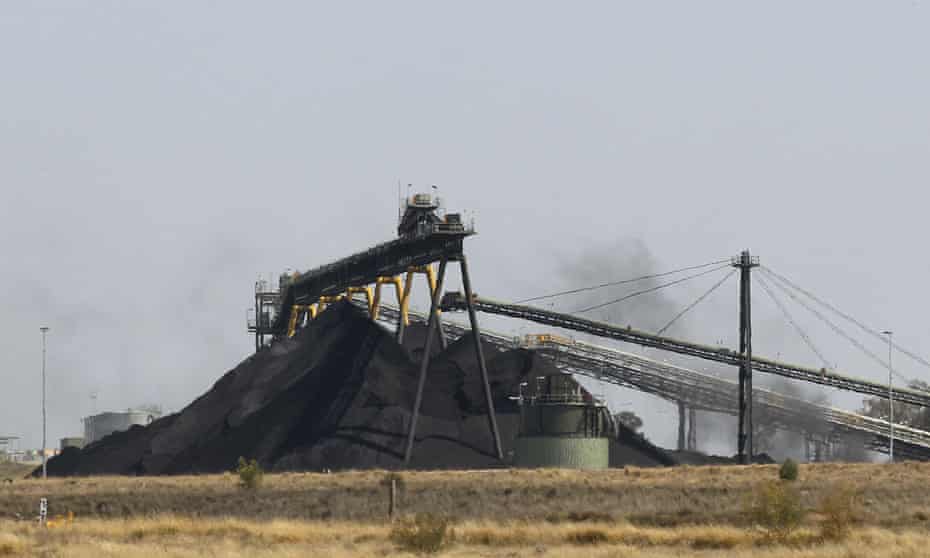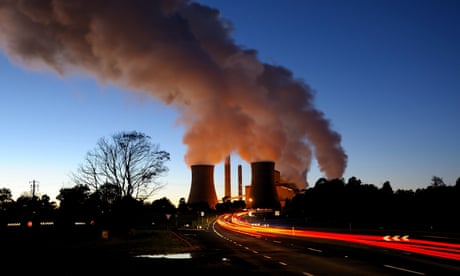Extract from The Guardian
The 23 coal and gas approvals could release six times the greenhouse gas Australia emits in a year, environment group warns.

Last modified on Sat 5 Feb 2022 06.02 AEDT
New South Wales authorities have approved new fossil fuel projects expected to release at least 3bn tonnes of greenhouse gas – six times what Australia emits in a year – since the start of the landmark Paris agreement five years ago.
The state’s Independent Planning Commission and its predecessor, the Planning Assessment Commission, have approved 23 coal and gas projects since the global climate deal formally came into force in November 2016, according to analysis by the Australian Conservation Foundation (ACF).
That was also the month the NSW Coalition government promised to reach net zero emissions by 2050.
Four coal developments – at Rocky Hill, Bylong and in the Illawarra and southern highlands – were rejected over that period. Another six major fossil fuel projects were awaiting a decision. They include Whitehaven’s proposed underground coalmine extension at Narrabri, which is the subject of public hearings this month.

Based on documents submitted to the commission, ACF found emissions stemming from the approved projects – including those released on site (called scope one), from electricity used to run the operations (scope two) and the ultimate use of the coal and gas, often overseas (scope three) – would be about 3.2bn tonnes. That would reach 5bn tonnes if all currently proposed projects were approved.
Annual emissions within Australia are about 500m tonnes. Using a carbon budget approach – which calculates the remaining emissions possible to give the planet a chance of limiting global heating to 1.5C above pre-industrial levels – ACF found the approvals in NSW since 2020 were equivalent to 1% of the global total.
Annica Schoo, the group’s lead investigator and a former federal government compliance and policy officer, said this was a conservative assessment as some companies did not fully disclose their expected lifetime emissions, and estimates of the true heating impact of methane – a more powerful heat-trapping gas than carbon dioxide – had increased in recent years.
Schoo said the planning commission was not acting on its duty to make decisions that served the interest of the NSW people. Most of the projects would result in thermal coal being mined into the 2030s and 2040s.
“I don’t think anyone who witnessed the bushfires a couple of years ago would say that more carbon in the atmosphere is good for NSW,” Schoo said. “While UN climate framework rules mean Australia is not held accountable for some of these emissions because most of the coal and gas from these projects is burned elsewhere, Australia has a moral responsibility not to keep pushing climate-wrecking fuel on the world.”
The NSW government referred questions to the planning and environment department. A department spokesperson said NSW was “one of the first places anywhere in the world” to commit to net zero emissions by 2050, and government modelling showed its renewable energy, electric vehicle and hydrogen policies were expected to trigger a 50% cut in state carbon pollution by 2030 compared with 2005 levels.
“This places NSW as one of the top jurisdictions anywhere on the planet when it comes to emissions reduction commitments,” they said.
Schoo said a decision last year by the federal court that found the commonwealth environment minister had a duty of care to protect children from the climate crisis when exercising approval powers should be seen as a precedent for the state planning commission and other government decision makers.
The NSW approvals are consistent with other decisions to continue to approve and support fossil fuel projects across the country, although the federal government and both Coalition and Labor state governments have promised to reach net zero emissions by mid-century.
Western Australia supports significant gas developments off the state’s north-west, and Queensland backs coal developments including in the Galilee basin, the site of Adani’s Carmichael mine. Both have been supported by the federal government.
The Morrison government’s position on fossil fuels is that cost and global markets will dictate the pace of the shift to cleaner technology. It has approved the expansion of four coalmines since September and in July granted a $175m loan for a new metallurgical coalmine in Queensland. On gas, it has said it hoped to develop four more basins after Beetaloo.
Australia last year had more than 100 fossil fuel developments at various stages of development. An analysis found they could result in nearly 1.7bn tonnes of greenhouse gases a year, equivalent to about 5% of global industrial emissions, if all went ahead.
A new analysis by the Australia Institute found the federal government had committed $749m to programs that supported fossil fuel industries since it set a national net zero emissions target for 2050 in October. Most of that money – $500m – was dedicated to a $1bn low emissions technology commercialisation fund and to supporting “clean” hydrogen, which includes hydrogen made from gas and coal as well as renewable energy.
Richie Merzian, the Australia Institute’s climate and energy program director, said the key issue was that government was yet to introduce a promised hydrogen certification scheme that would show what type of fuel was used to produce it. Until that was in place, the extent to which support for hydrogen would be encouraging fossil fuels rather than renewable energy remained unclear, he said.
No comments:
Post a Comment